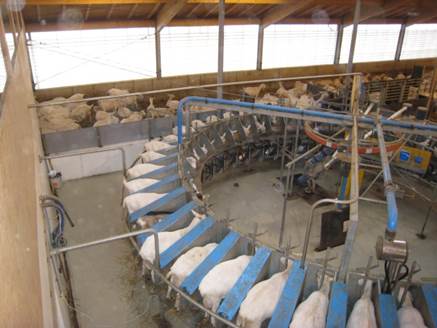In principle, the parasites can be treated with anthelmintics, but there are no dewormers approved for dairy goats in Austria. This means that others have to be reallocated and as a result an extended waiting period has to be observed. This is why goats are usually dewormed during the dry period. However, if goats are grazed (or fed green waste), egg excretion increases. Therefore, if there are signs of clinical disease, it may be necessary to perform deworming during lactation.
However, before clinical signs of disease become visible, parasite development comes at the expense of the animal's performance. This means that milk production can already be reduced in lactating goats.
The aim of this study is to determine the extent to which deworming during lactation affects milk production. As part of the data collection (milk yield and EPG), an economic assessment of deworming is also carried out with the aim of determining an economically sensible use threshold for deworming during lactation in dairy goats.

Goats in the milking parlor
HBLFA Raumberg-Gumpenstein





